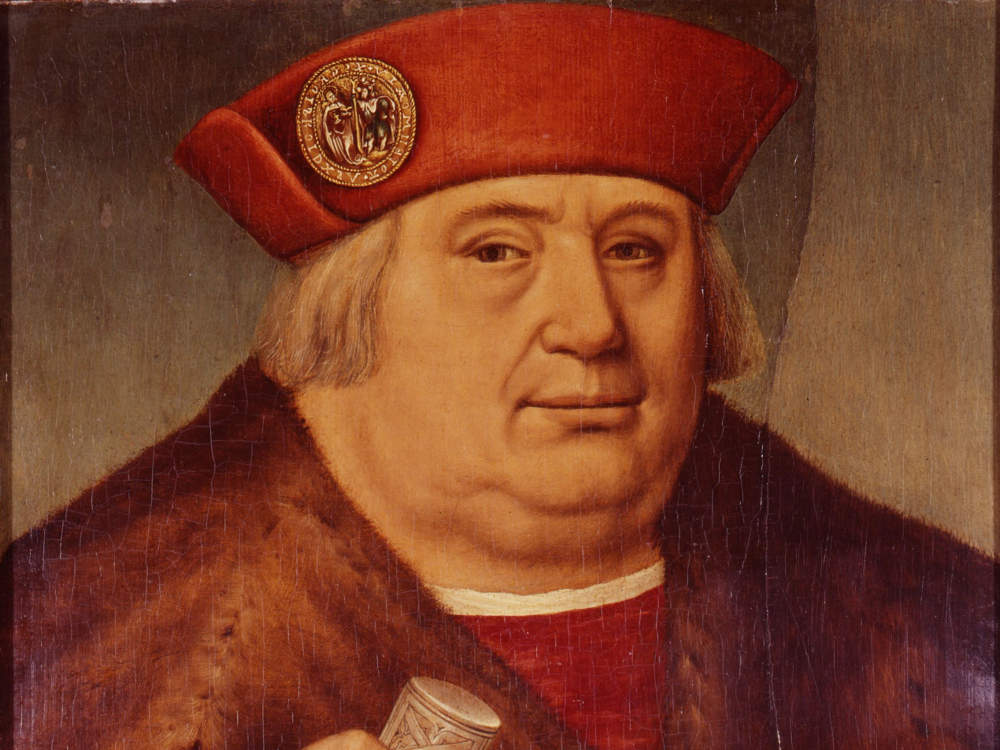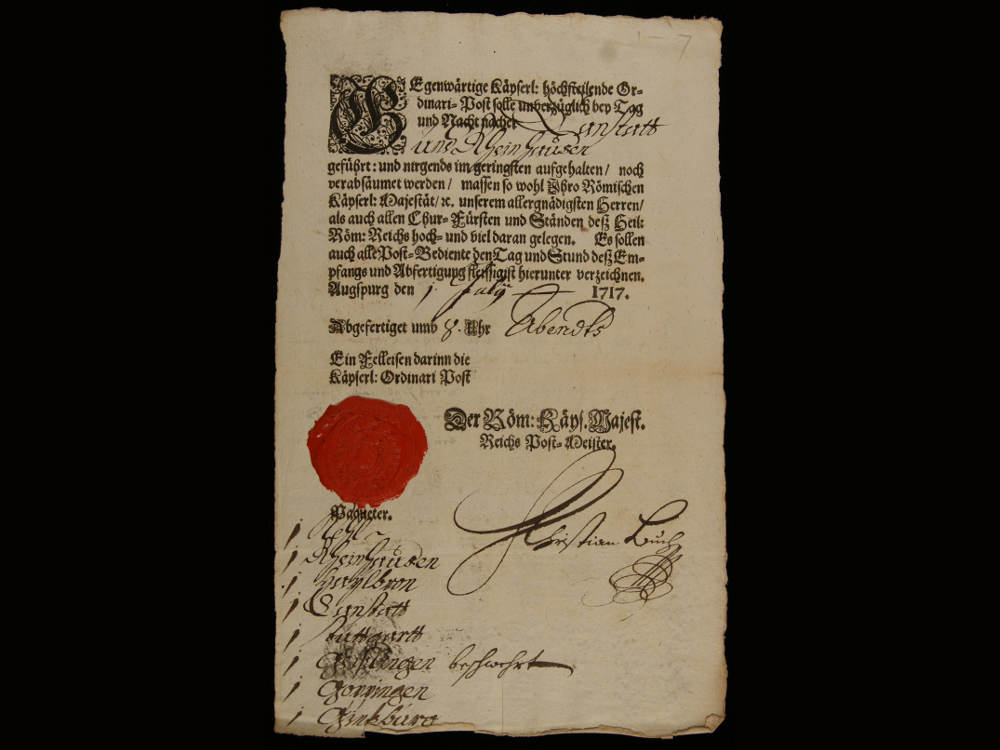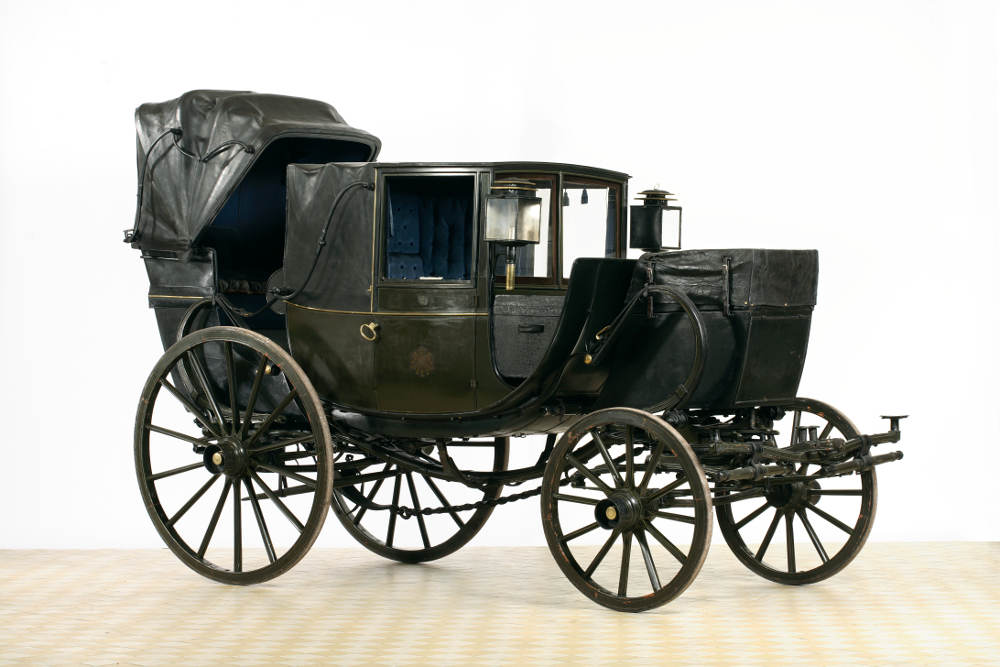Franz von Taxis and Johann Baptista von Taxis (Tasso)
Franz von Taxis (Francesco Tasso) and Johann Baptista von Taxis (Tasso): Founder of the international postal services
Franz and Johann Baptista von Taxis set up in the 15th century the first cross-border messaging system that paved the way for today's postal system.
Franz von Taxis
| Field | Postal services |
| Country | Italy / Germany |
| Born | 1459, in Camerata Cornello, Italy |
| Died | between 30 November and 20 December 1517, Brussels, Belgium |
| Induction into the Logistics Hall of Fame | 2016, Federal Ministry of Transport and Digital Infrastructure, Berlin, Germany |
| Congratulary Speaker | Dorothee Bär, Parliamentary State Secretary at the Federal Minister of Transport and Digital Infrastructure, Berlin, Germany. Logistics Coordinator of the German Government. |
Johann Baptista von Taxis
| Field | Postal services |
| Country | Germany |
| Born | around 1470 |
| Died | 16.10.1541, Regensburg, Germany (accompanied by emperor Karl V. at the "Reichstag") |
| Induction into the Logistics Hall of Fame | 2016, Federal Ministry of Transport and Digital Infrastructure, Berlin, Germany |
| Congratulary Speaker | Dorothee Bär, Parliamentary State Secretary at the Federal Minister of Transport and Digital Infrastructure, Berlin, Germany. Logistics Coordinator of the German Government. |
-
Merits
- In 1490, Franz and his nephew Johann Bapista von Taxis (Tasso) founded the European postal services by order of the Roman-German King and later Emperor Maximilian. The first centrally organised postal service was the Netherlands Postal Line. It was established in 1490 by Franz and Johann Bapista von Taxis, from whom the Regensburg dynasty stemmed, between the Court of Maximilian I in Innsbruck and his son Philip in Brussels in the Burgundian Netherlands.
- Unlike the courier services that had existed until then, Taxis established the first permanent service in national form. The letters were no longer carried by a courier from A to B, but passed on like a baton. Johann instructed owners of hostelries and crossings at specified distances (between 15 and 35 km) to have horses ready for the royal couriers and placed the exchange stations outside city walls so that the letters could be carried day and night. It was customary that the rides in order to save time take over the letters from the one before him while riding. This enabled a daily average distance of 166 kilometres to be covered, which by the standards of the day represented a transport speed of 6.6 kilometres per hour, including stops.
- In the postal convention between King Philip of Spain and Franz von Taxis, signed on 18 January 1505 in Brussels, journey times were set for the first time for summer and winter. Subsequently, the journey time on the Brussels-Innsbruck route was 5.5 days (6.5 days in winter). For the Brussels-Paris route, Taxis calculated only 44 hours (54 hours in winter). This time was repeatedly shortened in later postal conventions. Hourly passages of the post were checked. In the event of war, the Taxis postmasters were responsible for arranging an alternative route as quickly as possible. They were liable for compliance with the convention with their body, life and possessions.
- The postal conventions of 1505, 1516 in 1517 laid the foundations for the rise of the Taxis family and subsequent monopoly in historical postal services. Members of the Taxis family steadily established more and more routes. By the mid 16th century this enabled cross-border communication by the Habs-burgs from Antwerp to Naples and from Prague to Seville (Compagnia et Società Tassis).
- At the outset, the postal service was not open to private correspondence. Only letters and parcels from the dynastic area were transported. Without informing their principals, the Taxis family additionally began carrying letter for outsiders. From 1520 onwards, the transport of private mail on the Netherlands Postal Line assumed such a volume that that it was initially tolerated and ultimately approved.
- Along the trade routes, this quickly resulted in the formation of a network. The foundation was laid for the Imperial Reichspost under the protection of the Emperor. It was available to any interested party in return for payment. This saw the operation of the Imperial Reichspost from Brussels from 1500, from Frankfurt am Main from 1701 and from Regensburg from 1748 by members of the Taxis family, which renamed in 1695 with imperial authorisation in Thurn und Taxis. In 1650 the Thurn und Taxis were ennobled as imperial princes by the emperor and served continuously as the postmaster general. The Imperial Reichspost experienced its peak in the years before the french Revolution. In 1787, there were 22 Taxis main post offices and more than 2.500 post offices, which handled almost the entire Reichspost.
- After dissolution of the Holy Roman Empire in 1806, some of the successor states took over the establishments of the Taxis Reichspost under severance orchestrated by the state, while others engaged the family to continue Thurn-und-Taxis tenure post as a private company, which was run from Frankfurt until 1867. In 1867, Prussia forced the transfer of the company to the Prussian state for a fair price (source: Fürst Thurn und Taxis Zentralarchiv).
















































